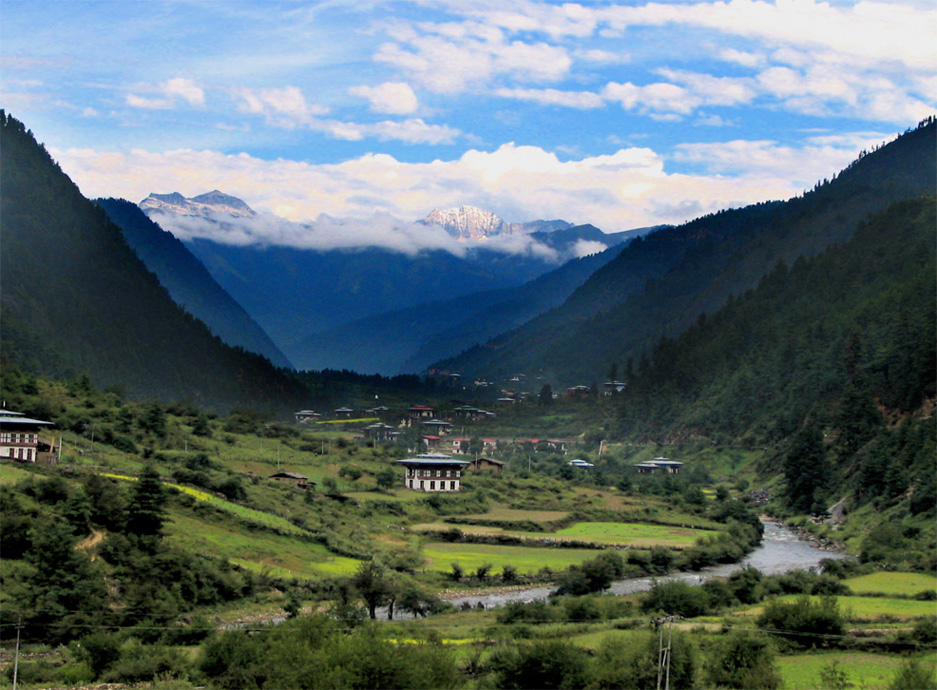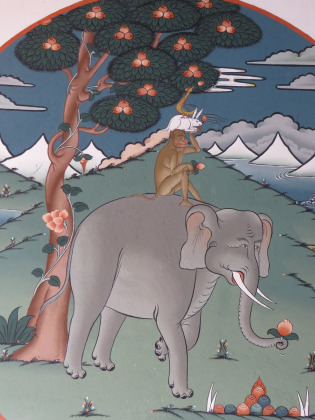 Situated in the Himalayas, in between Tibet and India, is the last intact Buddhist Kingdom: Bhutan.
Situated in the Himalayas, in between Tibet and India, is the last intact Buddhist Kingdom: Bhutan.
Guru Rinpoche, the emanation of the Buddha, flew on the back of a Tigress in the 8th Century to bring Tantric Buddhism to this remote kingdom, the size of Switzerland.
Today 750,000 Bhutanese live in this pristine jewel-box of old growth forests that cover 85% of the kingdom, a primarily agricultural, rural society, where yaks and cattle occupy the one-lane “national highway.” It is here that the enlightened 4th King committed his people to “gross national happiness” and sustainability, instead of gross national product, and mindless consumerism.
When Bhutan is making business decisions, the world’s youngest democracy consciously considers each project’s potential impact on the environment and its bio-diversity. Business proposals are screened for their value of enhancing or detracting from the well-being of their people. The Bhutanese government has a keen recognition of the interdependence of people and natural systems. They have first-hand experience of the impact from glacial melting devastating whole villages with torrential flooding.
Bhutan has killed a gold mining operation. Killed it, for the same reason that tourists and mountaineers are not permitted to climb its lofty, sublime peaks, among the highest in the world. In a word: respect for the environment and a clear-eyed recognition of the interdependence of all things. It is a playbook for the planet.
At a time when the World Wildlife Fund’s (WWF) 40 year study of 3,000 animal species, recently found a shocking 52% decline in animal populations, Bhutan is a shining example of respect for bio-diversity.
There are many lessons to be gained from this tiny Kingdom. The profound respect for the interdependence of all things and beings resides deep in the Bhutanese culture.
 The “Four Friends” story:
The “Four Friends” story:
The bird dropped the seed and the rabbit kept the seedling warm in the winter.
The monkey pulled the weeds, allowing the tree to thrive.
The elephant brought water from the river to the young, thirsty tree.
The tree grew large and provided them all with fruits to eat, and shade and protection.
Every child in Bhutan knows this story of interdependence: It is a gift to the rest of us.
Experience a world you have never seen before, but whose heart you have always known.
For further information on our Bhutan tour, contact:
Charles Simmons and Marla Perry-Simmons.
Email: charles@nulltwoTruths.org
Telephone: 520-668-9410.